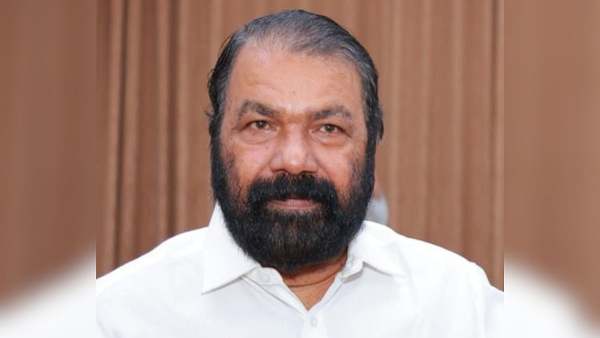
Kerala Education Minister V. Sivankutty defended signing the PM SHRI scheme to secure over ₹1,400 crore in pending Samagra Shiksha funds, saying it was a technical move under financial pressure. He emphasized the state retains full control over its curriculum, upholds secular and scientific values, and does not accept NEP 2022 mandates.
Thiruvananthapuram: Kerala Education Minister V Sivankutty on Friday defended the government's decision to sign the PM SHRI scheme, saying it was a strategic move to secure central funds while safeguarding the state's educational policies.
Addressing a press conference here, Sivankutty said the decision was taken to counter the Centre's attempt to "withhold thousands of crores in funds meant for children." "This government will not allow any measure that undermines public education or deprives children of their rightful funds. Our children will not lose a single rupee they are entitled to," he said.
He explained that the Centre had withheld funds under the Samagra Shiksha programme because Kerala had not joined PM SHRI (PM Schools for Rising India).
The funds withheld include Rs 1,087.87 crore for 2023-24, Rs 1,054.13 crore for 2024-25, and Rs 1,486.01 crore from previous years, he added.
The cumulative loss amounts to Rs 1,187.13 crore. By signing the PM SHRI scheme now, the state will be able to receive these pending funds along with allocations for the current programme - a total of Rs 1,477.13 crore, of which Rs 471.01 crore has already been agreed to by the Centre, the minister further said.
Sivankutty said the withholding of funds directly affects nearly 40 lakh students in public schools, including 5.61 lakh SC/ST students and 1.11 lakh differently-abled children who rely on special support, therapy facilities, and assistive devices.
Essential services such as free uniforms, textbooks, allowances for girls, pre-primary education, teacher training, and examination management under the Right to Education Act have also been affected.
Sivankutty clarified that signing PM SHRI does not mean Kerala has accepted the National Education Policy (NEP) 2022.
He said the alignment was "purely technical" as the Centre had announced in October 2022 that the Samagra Shiksha programme would serve as the basis for implementing NEP.
Kerala continues to follow its own policies in line with state priorities.
The minister asserted that the state government retains full control over its syllabus. Kerala has included topics such as the Babri Masjid demolition and Mughal history-which NCERT had removed-in its textbooks and assessments.
He emphasised that the curriculum would continue to focus on secularism, scientific temper, and constitutional values, reflecting Kerala's longstanding educational standards.
Sivankutty said the requirement to carry the 'PM SHRI' label on selected schools was merely technical, adding that the scheme does not mandate displaying the PM's name or photo.
Similar naming conventions are already used for other central schemes such as PM POSHAN for the mid-day meal programme and PM Usha for higher education. Of the 82 central schemes in Kerala, 17 begin with 'PM', including six in the education department.
He reiterated that Kerala's public education system would continue to uphold secular, democratic, and scientific values.
"Even while facing financial pressure, the state cannot allow our children to be put at a disadvantage. Signing the PM SHRI agreement will not lead to any compromise in Kerala's educational principles," he said.
Sivankutty said that during a general body meeting of NCERT in Delhi attended by ministers from 20 states, he was the only one to speak out against the Centre's "attempts to influence state curricula and politicise education." Answering reporters' questions, the minister said that when PM SHRI was first announced, the state government "had certain apprehensions".
"To clarify these, we held discussions with the Centre. Considering our concerns, the Centre initially asked us not to sign the agreement but to file an affidavit instead, under which the funds were released," he said.
Recently, however, the Union Education Minister and Minister of State for Education informed Kerala that failure to take a decision would result in "harsh steps", meaning the loss of funds. "To prevent this, we signed the agreement," Sivankutty said.
When asked whether the agreement was signed under pressure from the Centre, he replied, "You can think as you like." Sivankutty said the state government had approached the Supreme Court against the denial of funds. "We have not withdrawn the case - it is still pending. It was not only the Education Department; all departments in Kerala jointly filed against the fund denial," he said.
He also noted that education policies evolve. "Education traditions are changing globally, and Kerala cannot ignore these changes. We cannot stick to one policy forever. The LDF earlier had a policy of not accepting World Bank funds, but later accepted them, considering the circumstances," he said.
Responding to CPI state secretary Binoy Viswam's claim that the issue was not discussed within the LDF, Sivankutty said, "I am not part of the LDF committee. I do not know whether it was discussed there." He added that policies must adapt with time. "There will be changes as per circumstances. The government has no desire to lose money, citing NEP. What is the problem with NEP? I have changed my opinion," he said with a laugh.
(Except for the headline, this article has not been edited by FPJ's editorial team and is auto-generated from an agency feed.)